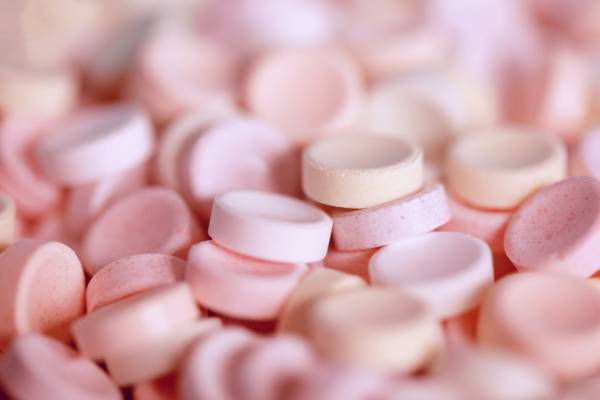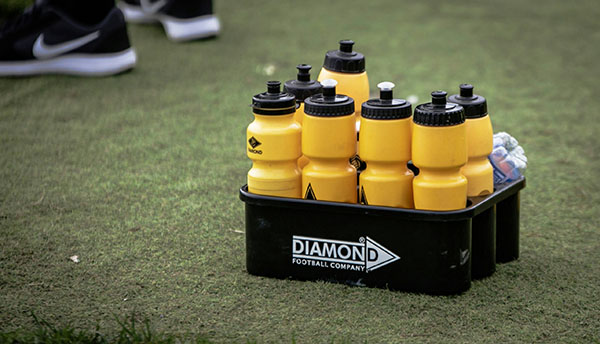Running can make you sweat buckets, especially if it’s hot or you’re going the distance. But sweat isn’t just water, it’s packed with salt your body needs. Enter salt tablets, small capsules meant to keep you from running out of steam when you lose too many minerals. But are they really necessary? Let’s break it down in a way anyone can understand.
What Exactly Are Salt Tablets?
Imagine a tiny pill filled with important stuff like sodium, potassium, and magnesium. These are called electrolytes, and your body needs them to keep everything working smoothly. When you sweat, you lose these minerals, and if you don’t replace them, your muscles might cramp up, or you could feel super tired.
Salt tablets are like a backup plan for when your sweat glands go into overdrive. They’re popular with runners and athletes who push their bodies hard, especially on long or hot runs.

The Good Things About Salt Tablets
Stops Muscle Cramps in Their Tracks
Ever had a cramp in the middle of a run? It feels like your leg is rebelling! That’s often because your muscles don’t have enough sodium. Salt tablets can help bring things back to normal so you can keep going without wincing in pain.
Keeps You from Feeling Like a Dried-Out Sponge
Your body uses salt to hold onto water. Without it, you could end up feeling lightheaded or dehydrated, even if you’re drinking a lot of fluids. Salt tablets help your body hold onto hydration instead of flushing it all away.

Boosts Your Energy Tank
When your electrolytes are in balance, your body works better. You’ll feel less sluggish, and your stamina will last longer. They’re like an extra push when your legs start feeling heavy.
The Not-So-Great Side of Salt Tablets
Not for Every Run
If you’re just jogging for 30 minutes or taking it easy, you probably don’t need salt tablets. Your body has enough reserves for short runs, so taking extra might be overkill.
Can Upset Your Stomach
If you pop too many tablets or don’t drink enough water with them, your belly might start acting up. Some runners feel nauseous or bloated after taking them.

Too Much of a Good Thing
Overloading on salt can throw your body out of whack. You might feel puffy or even get swollen fingers. Nobody wants sausage hands mid-run!
When Should You Use Salt Tablets?
Salt tablets aren’t something you need for every single run. Think of them as a special tool for specific situations. Here’s when they might be helpful:
- Marathons or Long Runs (90 Minutes or More): The longer you go, the more salt you lose, especially in your sweat.
- Hot and Sweaty Weather: If the sun is blazing and you’re dripping like a faucet, salt tablets can help you stay balanced.
- If You Sweat a Lot: Do your clothes get crusty with white streaks after a run? That’s salt! If you’re a salty sweater, you might benefit from tablets.
For quick runs or cooler weather, you’re probably fine with just water or a sports drink.
How Do You Use Salt Tablets?
Using salt tablets is pretty simple, but you have to get it right:
- Timing Matters: Take one tablet about every hour during a long run.
- Drink Water: Always swallow them with water, or your stomach might complain.
- Practice First: Don’t wait until race day to try them. Test them during training to see how your body reacts.

What Can You Use Instead of Salt Tablets?
Not into pills? No problem! There are other ways to replace lost electrolytes:
- Sports Drinks: These come with added sugar and electrolytes.
- Electrolyte Powders or Gummies: Mix them into your water or chew them as you go.
- Salty Snacks: Pretzels, crackers, or even pickles can give you a sodium boost.
Personal Experience: My Take on Salt Tablets
I don’t use salt tablets when I run, at least not yet. Most of my runs are under an hour, so I don’t really need them. But when I head out on my bike for long rides, especially ones lasting over two hours, that’s when I reach for them. I add salt tablets to my water bottle to keep my energy levels steady and avoid cramps during those extended sessions. They make a big difference when the ride is tough or the weather is warm.
For shorter activities, though, plain water does the trick for me. I stick to the basics and save the extra help for when it really counts.
Pros of Salt Tablets
1. Helps Prevent Muscle Cramps
Muscle cramps can sneak up on you during a workout, especially when you’re sweating a lot. This happens because your body loses sodium, which is crucial for proper muscle function. Salt tablets replenish this lost sodium, helping your muscles stay balanced and less prone to sudden, painful contractions. For anyone who’s ever had to stop mid-run or ride because of a cramp, you know how important this can be.
2. Improves Hydration Efficiency
Drinking water alone isn’t always enough to stay properly hydrated. Without enough electrolytes, your body can’t hold onto the water it needs, which can lead to dehydration. Salt tablets act like a helper, allowing your body to absorb and use water more effectively. This is especially useful during long or hot workouts where staying hydrated is critical.
3. Boosts Energy and Endurance
When your electrolyte levels drop too low, you can start feeling sluggish, tired, or even a little disoriented. Salt tablets can restore the balance of key minerals, helping you stay sharp and energized. It’s like refueling your system so you can keep pushing through those tough miles.

Cons of Salt Tablets
1. Not Always Necessary
If your run or ride is under an hour or the weather is mild, you probably don’t need salt tablets. Your body already has enough stored electrolytes for short workouts. Taking salt tablets when you don’t need them can be unnecessary and might even upset your stomach.
2. Stomach Troubles
Some people find that salt tablets don’t sit well with them. If you take them without enough water, they can cause nausea or bloating. Everyone’s digestive system reacts differently, so it’s something you have to test out carefully.
3. Risk of Overdoing It
Too much salt in your system can lead to swelling, puffiness, or even mild dehydration if your body struggles to process the excess. For example, you might notice your fingers or ankles getting a little puffy after a long workout if you’ve had too much sodium.
4. Not Ideal for Everyone
Salt tablets aren’t a good fit if you have specific health conditions like high blood pressure. Too much salt can raise your blood pressure temporarily, which might cause issues if you’re already managing a health condition. Always check with a healthcare provider if you’re unsure about adding them to your routine.
The Final Word on Salt Tablets
Salt tablets can be a lifesaver on long, sweaty runs or races, but they’re not a one-size-fits-all solution. For everyday runs, water or a good sports drink might be all you need. But when the miles get long or the sun’s beating down, they’re worth considering.
As always, listen to your body. Experiment during training, find what works for you, and remember: no one-size solution fits every runner.




